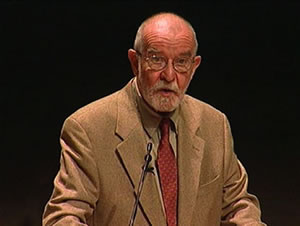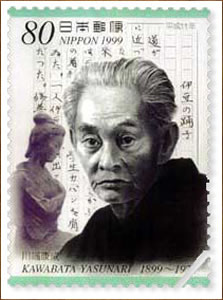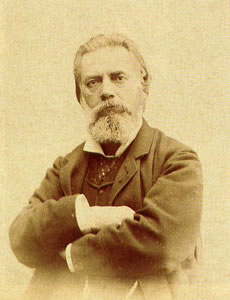De Amerikaanse schrijver William Styron werd op 11 juni 1925 in Newport News in de staat Virginia geboren. Zie ook mijn blogs van 11 juni 2006, van 4 november 2006. en mijn blog van 11 juni 2007 en ook mijn blog van 11 juni 2008 en ook mijn blog van 11 juni 2009.
Uit: The Suicide Run
„Amid the smelly stretch of riptides and treacherous currents formed by the confluence of the upper East River and Long Island Sound stands a small low-lying island. Surmounted for most of its length by ancient prison buildings, it is an island hardly distinguishable, in its time-exhausted drabness, from those dozen or so other islands occupied by prisons and hospitals which give to the New York waterways such a bleak look of municipal necessity and — for some reason especially at twilight — that air of melancholy and erosion of the spirit. Yet something here compels a second glance. Something makes this island seem even excessively ugly, and a meaner and shabbier eyesore. Perhaps this is because of the island’s situation; for a prison island it just seems to be in too nice a place. It commands a fine wide view of the blue Sound to the east and the white houses on the mainland nearby — houses which, though situated in the Bronx, are so neat and scrubbed and summery-looking as to make New York City seem as remote as Nantucket. One passing by the island might more logically envision a pretty park here, or groves of trees, or a harbor for sailboats, than this squalid acre of prison buildings. Yet perhaps it’s the buildings themselves which make the place look more than ordinarily grim and depressing — so that the cleanly utilitarian, white marble structures on the other of the city’s islands seem, by comparison, almost beguiling sanctuaries. These date back nearly a century, soot-encrusted brick piles of turrets and fake moats and parapets and Victorian towers. With these, and with their crenellated battlements and lofty embrasures and all the sham artifices of fortressed power, the buildings possess a calculated, ridiculous ugliness, as if for someone locked within the walls they must add to the injury of simple confinement the diurnal insulting reminder — in every nook and cranny unavoidable and symbolic — of his incarceration.”

William Styron (11 juni 1925 – 1 november 2006)
De Britse dichteres en schrijfster Renée Vivien (eig. Pauline Mary Tarn) werd geboren op 11 juni 1877 in Londen. Zie ook mijn blog van 11 juni 2007 en ook mijn blog van 11 juni 2008 en ook mijn blog van 11 juni 2009.
Ondina
Je lach is helder, je streling is diep;
Je koude kussen beminnen het begane kwaad;
Je ogen zijn blauw zoals een lotus op een golf,
en je voorhoofd is zuiverder dan waterlelies.
Je vorm vlucht, je beweging is vloeiend;
Je haren lijken op wuivend riet;
Je stem ruist zoals een verraderlijke vloed;
Je armen zijn buigzaam als riet.
Langs het hoge riet van rivieren, wiens omhelzing
verstrengelt, versmacht, wreedaardig wurgt;
Diep in de golven, dooft een doodsstrijd
in een nachtelijke bezwijming.
Vertaald door Lepus
Chanson
In pleated robes, long and flowing
Like all chimeras, gleaming bright
The bloom of spring to me you bring
Within your hands, so fair and light.
I dread that thrill, pearly and fresh;
Your fragile breast, I do not touch;
Trembling before your sacred flesh,
I dread your charming mouth as much!
To God, I feel my soul allies
When, underneath my proud embrace
The sweet blue bruising of your eyes
Extinguishes, without a trace.
But then, so white in my arms’ bonds,
At my love-cry, faint and devout,
You smile and you give no response,
Your closed eyes freezing my soul out…
Spectral remorse still makes me dread, –
Which ecstasy cannot suppress, –
That you, somehow, may be wounded
By a spontaneous caress.
Vertaald door Melanie Davies

Renée Vivien (11 juni 1877 – 10 november 1909)
De Franse schrijver Jean-Pierre Chabrol werd geboren op 11 juni 1925 in Chamborigaud. Zie ook mijn blog van 11 juni 2009.
Uit: L’arbre de la liberté
„Quand j’étais petit, je voyais un homme embrasser un arbre. L’homme avait quatre-vingts ans. L’arbre avait soixante ans. Moi, j’avais cinq ans.
Ce vieillard était l’un de ces artisans autodidactes, féru d’idées nouvelles. Sa religion à lui, c’était la science. Il était bavard, il pouvait, pendant des heures, vous citer aussi bien la Bible que Proudhon.
Il me disait : « Mon petit, quelle chance tu as d’arriver dans un siècle où la science avance à pas de géant. Bientôt, l’homme sera tellement intelligent, tellement bon, qu’il n’y aura plus de guerre, plus d’armée, plus de frontière, plus de nation. Chacun se régalera de vivre à son aise, avec le métier qu’il aura choisi, le métier qui le passion¬nera. Chacun se cultivera, s’épanouira. L’homme sera enfin un ami pour l’homme… »
Les soirs d’été, il se rendait à pas lents vers notre petite mairie pour saluer l’arbre de le Liberté. Cet arbre avait été planté en 1871, à la chute de l’Empire, pour célébrer la République nouvelle. Le vieillard avait alors vingt ans. Il avait fait partie de ces garçons et de ces filles qui avaient dansé des rondes folles autour de l’arbuste qu’ils venaient de planter.
Mais l’arbuste était devenu un arbre magnifique. Le vieux posait sa canne contre le tronc rugueux, de ses bras maigres il enlaçait convulsi¬vement le tronc, il levait les yeux vers le feuillage magnifique, et on entendait qu’il murmurait : « Ah, ma liberta ! » et une grosse larme allait se perdre dans sa barbe blanche.„

Jean-Pierre Chabrol (11 juni 1925 – 1 december 2001)
De Nederlandse schrijfster Sophie van der Stap werd geboren in Amsterdam op 11 juni 1983. Zie ook mijn blog van 11 juni 2009.
Uit: Duurzaamheid (Column)
“Ook in de keuken doe ik hard mee met het opvreten van het wereldschoon. Eigenlijk maak ik me tussen opstaan en weer
naar bed gaan meerdere keren per dag schuldig aan een overbodig consumeergedrag, en moet ik helaas toegeven dat er met de jaren meer behoeftes dan principes in mijn lijf zijn geslopen. Goed, ik ben geen werkpaard dat zijn geluk binnen de muren van een winstgevend bedrijf zoekt, maar dat komt eerlijk gezegd slechts door een kapitalistisch gelukje waar ik nog steeds de vruchten van pluk. In ieder geval niet omdat ik al begrijp dat het niet hebben van geld misschien wel veel meer vrijheid waarborgt dan het altijd hebben van geld.
Deze test ga ik binnenkort trouwens aan levende lijve ondervinden. Als reizende schrijfster is niet alleen het bed waar ik in wakker word vrij onbepaald, maar tegenwoordig ook mijn bankrekening. Wat wil zeggen dat ik geen idee heb of ik in het voorjaar nog duurzame kippen van 23 euro per stuk kan kopen. (Een Bresse kip gaat hier op de Rue de Bretagne voor 35 euro over de toonbank).”
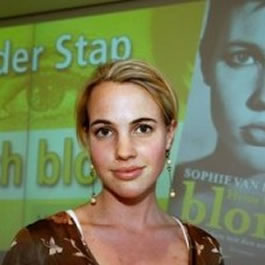
Sophie van der Stap (Amsterdam, 11 juni 1983)
De Engelse dichter en schrijver Ben Jonson werd geboren rond 11 juni 1572 in Westminster, Londen. Zie ook mijn blog van 11 juni 2006 en ook mijn blog van 11 juni 2007 en ook mijn blog van 11 juni 2008 en ook mijn blog van 11 juni 2009.
That Women Are But Men’s Shadows
Follow a shadow, it still flies you,
Seem to fly it, it will pursue :
So court a mistress, she denies you ;
Let her alone, she will court you.
Say are not women truly, then,
Styl’d but the shadows of us men ?
At morn and even shades are longest ;
At noon they are or short, or none :
So men at weakest, they are strongest,
But grant us perfect, they’re not known.
Say, are not women truly, then,
Styl’d but the shadows of us men ?
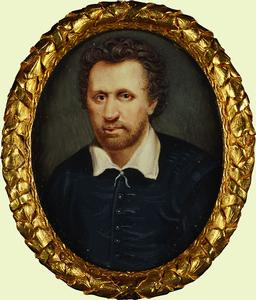
Ben Jonson (ca. 11 juni 1572 – 6 augustus 1637)
Zie voor nog meer schrijvers van de 11e juni ook mijn vorige blog van vandaag.

